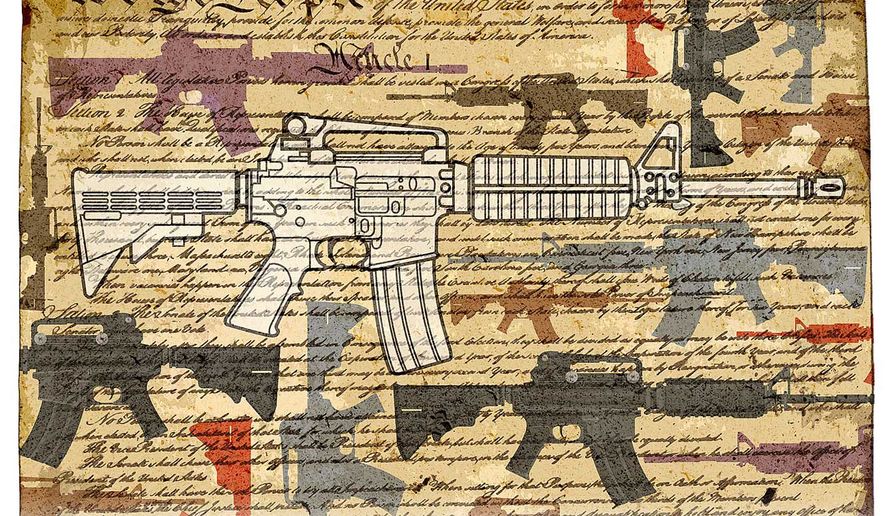OPINION:
The Second Amendment isn’t getting much respect these days. With contentious issues such as immigration and federal spending stealing the political spotlight, the Supreme Court decided it was far too busy to clarify the meaning of our right to keep and bear arms.
Chief Justice John G. Roberts Jr. and the high court majority declined to take a stand on a simple question: whether the AR-15, the most popular rifle in the United States, qualifies as being “in common use” and thus entitled to constitutional protection.
The Maryland General Assembly and eight other states have enacted schemes to prevent firearms ownership by 30 million law-abiding Americans. In its zeal to forbid Marylanders from owning scary-looking black rifles, the 4th U.S. Circuit Court of Appeals declared that AR-15s aren’t “arms.”
Justice Brett M. Kavanaugh said he realized the 4th Circuit’s reasoning was “questionable,” but its conclusion stands, for now.
Refusing to hear the case “does not mean that the Court agrees with a lower-court decision or that the issue is not worthy of review,” his honor explained. “Additional petitions for certiorari will likely be before this Court shortly and, in my view, this Court should and presumably will address the AR-15 issue soon, in the next Term or two.”
Justices Samuel A. Alito Jr., Neil M. Gorsuch and Clarence Thomas had urged their colleagues to act, given the level of cruel and unusual torture the appellate judges applied to the law to arrive at their preferred outcome. The 4th Circuit offered the straw man argument that bazookas and briefcase nukes might be carried one day if the judiciary tolerated the bearing of any “common” weapons for self-defense.
Justice Thomas countered: “To fend off the fantastical threat of Americans lobbing nuclear warheads at one another, the Fourth Circuit has allowed the very real threat of the government depriving Americans of the rifle that they most favor for protecting themselves and their families.”
The same high court majority that rushed within a matter of hours to vindicate the supposed due process rights of illegal alien gang members now suggests law-abiding American citizens must sit at the back of the constitutional bus and wait a “Term or two” before being heard on this matter, even when they have a slam-dunk case.
“I doubt we would sit idly by if lower courts were to so subvert our precedents involving any other constitutional right. Until we are vigilant in enforcing it, the right to bear arms will remain a second-class right,” Justice Thomas observed.
Congress and the president shouldn’t rest while the high court winks at states that perpetuate injustice. The House ought to force the issue by adopting legislation providing nationwide reciprocity for concealed carry permits.
Introduced by Rep. Richard Hudson, North Carolina Republican, the bill would enable a resident of one state to lawfully protect himself and his family when traveling to jurisdictions such as the District of Columbia, where officials intentionally make the requirements for obtaining a permit expensive and onerous.
Under the proposal, which has cleared the Judiciary Committee, concealed carry permits would function like driver’s licenses. A permit valid in one state would be recognized as valid in another, so long as permit holders abide by local regulations when exercising their right.
Such legislation is one way the legislative and executive branches can remind the high court and rebellious Democratic-led states that the Bill of Rights isn’t optional.




Please read our comment policy before commenting.